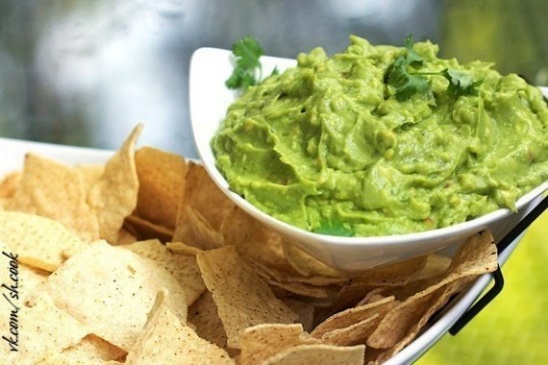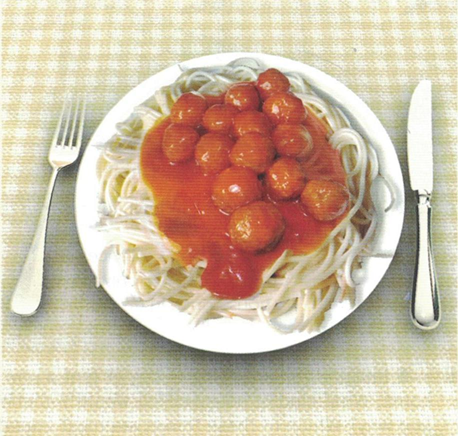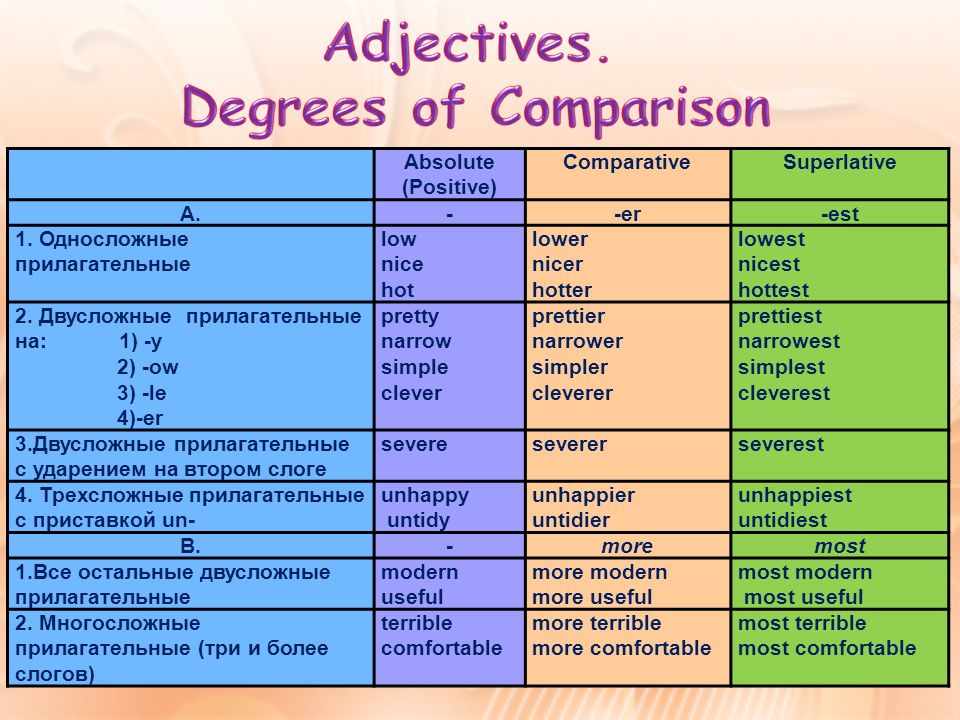Файл: Unit 6 Vocabulary Ex. Study the vocabulary list. Translate the sentences from English into Russian.odt
ВУЗ: Не указан
Категория: Не указан
Дисциплина: Не указана
Добавлен: 02.05.2024
Просмотров: 47
Скачиваний: 0
ВНИМАНИЕ! Если данный файл нарушает Ваши авторские права, то обязательно сообщите нам.
UNIT 6
Vocabulary
Ex. 1. Study the vocabulary list. Translate the sentences from English into Russian:
e.g. That’s a little tough, but that’s the name of the game,’’ Robinson said. e.g. That might explain why some people who love Trump’s tough-talking style are angry over the comments made at a campaign rally last week.
e.g. stressful morning
e.g. I had tough time at that moment and couldn’t offer you a helping hand.
e.g. It’s a rather tough place to work outdoors.
e.g. It’s better to give him what he wants tough. | трудный/ суровый/ сложный/ грубый напряженный, ведущий к стрессовой ситуации cложное, непростое время столкнуться с трудностями трудное место для жизни бескомпромиссно, упорно, сурово, грубо | ||||
| 2. to drive (v.) (a car, taxi) e.g. I’m afraid of traveling in his car. The problem is that he drives very tough.
e.g. taxi/ bus/engine driver
e.g. To get a taxi driver’slicense one has to take a certain number of driving lessons from an experienced driving instructor. | ехать на машине, водить машину водитель машины инструктор по вождению автомобиля уроки вождения автомобиля | ||||
| 3. to cycle (v.) e.g. Do you cycle to work?
e.g. He rode his cycle into town.
e.g. I saw someone on the cycle lane. That was you on your bike. | ехать на велосипеде, описывать круги велосипед велосипедная дорожка | ||||
| 4. condition (n. c. / u.)
e.g. The road was in bad condition.
e.g. He had to live in the toughest living conditions.
e.g. Her responses to the questionswere conditionedby political considerations.
| состояние / условие условия труда быт, жилищные условия, условия существования обуславливать / определять / регулировать кондиционирование воздуха / кондиционер | ||||
| 5. busy (adj.) e.g. Life in a city like Mumbai is extremely busy.
e.g. Driving on the busy streets of Mexico was the toughest ever experience.
e.g. A well developed commuting network today is very important for a busy society like ours. | активный, хлопотливый, бойкий оживленный, интенсивный (оживленная улица, интенсивное движение) интенсивная, напряженная жизнь общества | ||||
| 6. access (n.) e.g. There isn’t enough access to the public transport for people in wheelchairs. | доступ, подход, проход | ||||
| 7.
| час пик дорожная пробка/ светофор пешеходный переход переходить через улицу среди машин выделенная полоса (для велосипедистов / для общественного транспорта застрять в… ч.-л./где-л. | ||||
| 8. density (n. / u.) e.g. Density of population of Mexico City exceeded reasonable numbers.
e.g. The traffic is usually very dense at this morning hour.
e.g. Our hotel is densely occupied on the Eve of the New Year. | плотность плотный плотно | ||||
| 9. make things worse e.g. To make things worse the air conditioning was not working properly in my car when I was waiting for the traffic jam to become less dense. | усугубить положение, ситуацию, что еще хуже | ||||
| 10. indicate (v.) e.g. The sign indicated that we couldn’t cross theroad there.
e.g. Her gloomy mood was a clear indicator ofdisapproval of the idea. | обозначать, значить, указывать, показывать, свидетельствовать о ч-л. знак, признак, указатель/стрелка на шкале | ||||
| 11. multiword (phrasal) verbs:
e.g. Walking was his preferred way of getting around. / Aren't you curious about how I got around so fast?
e.g. She showed us around the city. You've never been to my house before. Let me show you around.
e.g. Before you make your final decision about the deal look properly around the house.
e.g. After a few days in Japan I picked up a few Japanese phrases. e.g. Be ready waiting at the entrance at 10. I’ll come and pick you up.
e.g. We waited for him for 4 hours, but he never turned up. e.g. The problem turned up when we were in the final stage of the research.
e.g. It turned out that we have never met before
e.g. He often goes out with friends for a meal on Fridays after work.
e.g. You are not familiar with this place, and will be lost as soon as you go out on your own.
e.g. Many people don’t travel only because they tend not to eat out.
e.g. Don’t drink the milk, it’s gone off. go wrong e.g. There’s always the chance that something will go wrong.
e.g. There were steps going down to what had once been a lawn.
e.g. Which shoes go best with this dress? | (зд.) передвигаться, добираться (до нужного места, например, в городе) показывать достопримечательности (города); показать дом (провести по комнатам). осматривать что-л выучить ч.-л., научиться ч.-л. (без больших усилий) подхватить, захватить/подвезти появиться (неожиданно) выясниться, оказаться, оказываться выходить из дома куда-нибудь/ в свет проводить время вне дома выйти из дома одному, в одиночку, без сопровождения ходить в ресторан, кафе/ пойти поесть вне дома (зд.) скиснуть пойти не так, неправильно, ошибиться, идти плохо (зд.) спускаться, снижаться (зд.) гармонировать, подходить, соответствовать, сочетаться | ||||
| 12. verbs of perception: looks feels The meal tastes fresh. smells seems | глаголы чувственного восприятия: выглядеть чувствоваться ( ощущаться) обладать вкусом обладать запахом казаться | ||||
| 13. spoil (v.) (spoiled or spoilt) e.g. That quarrel spoiled the celebration e.g. Grandparents sometimes spoila child.
e.g. It was too hot outside and the milk spoiledbefore we got home. | портить, повреждать, расстроить что-либо/ погубить / избаловать кого-либо приходить в негодность, портиться | ||||
| 14. passion (n. c./u.) +for smb./smth. e.g. Only much later he finally shared with me his great passion for poetry. e.g. He had never felt such passion for any woman but her.
e.g. His passionatespeech made everybody cry with tears.
e.g. Singaporeans are passionate about their food and eating. |
страстный, пылкий быть увлеченным чем-л.; относиться к ч.-л. с энтузиазмом | ||||
| 15. cuisine (n. c./u.) e.g. I think cuisine is like a window into history. |
| ||||
| 16. offer smb. smth. / to do smth. e.g. He offered me tickets/ to go to the theater.
e.g. His offer to resign will be accepted.
e.g. They couldn’t resist the offer I made them.
e.g. There was plenty of great food on offer in the café. | предложить к.-л. что-л./сделать что-л. предложение сделать предложение к-л. быть в ассортименте / быть в продаже | ||||
| 1  7. to chop 7. to chopto fry to heat up to mash some products to mix to squeeze to stir serve (v.) (food) e.g. Dessert was served to follow lamb saddle. e.g. It’s a duty of every man to serve in the army.
e.g. They offer good service in this hotel. e.g. They offer lots of services there.
e.g. This workshop services only local cars. | крошить; нарезать; шинковать жарить, поджаривать подогревать, разогревать разминать, превращать в пюре смешивать, соединять выжимать, выдавливать, сжимать мешать, размешивать, помешивать обслуживать (в ресторане, кафе); подавать еду служить (отбывать срок)/ работать обслуживание, сервис, услуга обслуживать/ осуществлять технический контроль | ||||
| 18. do smth for some reasons e.g. Some people have to move to another country for family or work reasons.
e.g. You were doing it for all the wrong reasons anyway. | делать ч.-л. по каким-то причинам/ неспроста вопреки всему, несмотря ни на что | ||||
| 19. annoy (v.) e.g. He keeps on singing when he knows it annoys us.
e.g. Her chatter was very annoying for everybody.
e.g. The service in the café was slow and extremely disappointing. | досаждать, допекать, достать к.-л. раздражать, надоедать расстроить, огорчить, не оправдать надежд неутешительный, раздражающий | ||||
| 20. culture shock e.g. to experience culture shock | культурный шок | ||||
| 21. miss (v.) e.g. In a different place the life feels too fast or to too slow, the food tastes strange, you start to miss your usual environment and experience what is called culture shock. | испытывать недостаток в ч-л./ скучать по чему / кому-либо | ||||
| 22. last (v.) e.g. Winters last long in these northern areas. e.g. He lasted only two days in this exhausting job. e.g. Such quality shoes will last you for long. | продолжаться, длиться, выдерживать (о здоровье), сохраняться, служить (к.-л.) | ||||
| 23.
|
соленый горькая (с горчинкой) апельсиновая начинка ломкий, хрусткий, хрустящий хлеб хорошо вымешанное, однородное масло вкусные фрукты безвкусная подливка из авокадо изысканный на вкус жирный, обильный, сочный, яркий (на вкус) жирный, густой, кремообразный соус отяжеляющий, тяжелый для желудка легкий десерт обильная, огромная (щедрая) порция сырой/ не прошедший (тепловую) обработку переваренные макароны сваренный на пару рис | ||||
| 24. meal (n. c./u.) e.g. They have five mealsa day.
e.g. Take one pill at mealtime.
e.g. The simple home-made meal which was served consisted of salad as a starter, bean soup for the first course and some sea food |
for the main course and was light and fresh.
Ex. 10 Look at the signs. Then complete the advice using a modal verb. Sometimes more than one form is possible.
| NO PARKING |
You ________ park here.
| FREE BUS TO THE SHOPPING CENTRE |
You ________pay for the bus to the shopping centre.
| WARNING! Car thieves in this area. LOCK YOUR CAR |
You ______ leave your car unlocked. It might get stolen.
| FIRE EXIT EMERGENCY ONLY |
You______ use that door – it is only for emergency.
| USE OFFICIAL TAXIS ONLY |
You ______only use official taxis.
SPEAKING
Ex. 1 A foreign visitor is coming to live in your country for six months. Prepare to give him/her some advice. Use the ideas in the box and your own ideas to make a list of rules and tips.
| roads, pavements and cycle lanes / public transport / eating and drinking / talking to people who are older than you / going out at night / clothes / language / parks and public spaces |
For example:
You mustn't eat or drink when walking in the street.
You should always give your seat to an older passenger on the bus.
Ex. 2 Take turns to read out your rules. Discuss the questions.
1 Which rules are about safety?
2 Which are about being polite to people?
3 Which rules are the most important?
Ex. 3 Read the questions and make notes about your answers.
1 Which foreign country/other area would you like to study/do your job in?
2 Why would you like to live there?
Ex. 4 Discuss the questions in Ex.3. Think of anything your partner should/must/mustn’t do to prepare. What other advice would you give them?
VOCABULARY
Describing food
Ex. 1 Look at photos a-e and discuss the questions.
1 Which food would you most like to eat?
2 What country do you think each dish comes from?
3 What ingredients does each dish contain?
4 Which of the dishes could a vegetarian eat?

a

b

c

d

e
Ex. 2 Match descriptions 1-5 with photos a-e.
1 Tasty Moroccan meatballs cooked in a tomato sauce, served with couscous and fresh herbs.
2 Creamy Mexican avocado and tomato dip with crunchy tortilla chips.
3 Japanese noodles with vegetables in a light soup served with a raw egg.
4 White fish cooked in a spicy Thai sauce with hot green chillies.
5 A slice of rich Austrian chocolate cake with a bitter orange filling.
Ex. 3 Which adjectives in Ex. 2 could you use to describe a salad, a soup, or a curry?
Ex. 4 Label the pictures using the pairs of adjectives in the box.
| creamy / crunchy / fresh / dried / cooked / raw / heavy / light / sweet / sour |

Ex. 5 A visitor has come to your town. You're going to give advice about where to go and what typical dishes to try.
Student A: Give the visitor advice.
Student B: You are the visitor. Listen and ask further questions.
Now change roles and have a second conversation.
Ex. 6 Complete the two recipes with the words in the box.
| add chop (x2) fry heat up mash mix serve squeeze stir |


-
______one onion and two cloves of garlic. -
_________500g minced lamb to the onions, -
with salt, pepper and spices. Make the mixture into balls. -
_______ one tablespoon of olive oil in a pan. -
_______the meatballs in the oil. -
Add two tins of tomatoes and 200m1 of water. Cook for 30 minutes and _____occasionally.
Ex. 7 Underline the correct words.
1 The coffee is too sour / bitter / sweet. You know I don’t take sugar.
2 To make a Spanish omelette add the creamy / heavy / cooked onions and potatoes to the eggs and then fry the mixture for a about five minutes.
3 When you make a salad it is better to use cooked/ raw / sour carrots so they don’t lose their vitamins.
4 Sorry, I can’t eat these cornflakes quietly. They are really crunchy / sour / raw.
5 It’s the butter and the milk in this sauce that makes it taste so creamy / crunchy / sour.
6 This cream is horrible. It tastes really died / heavy / sour. When did you buy it?
7 It’s always better to use fresh / sweet/ heavy herbs when you are cooking. They taste much nicer.
8 I had a rally light / raw / heavy dinner last night so I didn’t sleep well.
Ex. 8 Complete the sentences form the words from the box.
| add stir mix mash chop fry squeeze heat up serve |
1 You need to ______ the juice from four large oranges to make a glass of orange juice.
2 When the potatoes are cooked, take them out of the water and then ______them with a little butter and milk until they are smooth and creamy.
3 Using a sharp knife, ______ the onions and peppers finely and then ____them in a little olive oil for about five minutes.
4 ______a little salt and pepper to the tomato sauce and cook it slowly for about twenty minutes.
5 To make the salad, _______the lettuce, tomatoes, onions and cucumber together, put a little olive oil and balsamic vinegar on top and ______with some fresh bread and butter.
6 _______the mixture of milk, butter and flour in a saucepan and ____continuously with a wooden spoon to ensure a smooth, creamy sauce.
Ex. 9 Prepare a simple recipe for a dish you like. Make notes about the ingredients you need and how you make it.
Ex. 10 Take turns to talk about your recipes. Would you like to eat each other's dishes?
LISTENING
Ex. 1 Discuss the questions.
1 Do you have vending machines in your country? What do they sell?
2 How often do you use them?
Ex. 2 Listen to part of a radio programme about vending machines in Japan. (track 2.30)
1 What food and drink is mentioned?
2 What are the advantages for customers of vending machines over buying things from a shop?
3 What does the reporter think of the hot meal?
Ex. 3 Would you buy hot food from vending machines?
GRAMMAR
Comparatives and superlatives
Ex. 1 Study the table and the rules.

We can use comparative adjectives and adverbs to compare two things, situations, times, actions, etc. usually with than. We can change the degree of comparison with words like a lot, much, far, even, slightly, a bit, a little: Life's a lot more interesting than before. She's a bit happier than she used to be. He's speaking much more slowly than usual today.
The opposite of more is less. We can use it with all adjectives and adverbs:
The car's slightly less clean than it was.
I drive less quickly than he does.
as + adjective/adverb + as shows that two things are equal; not as ... as means less than:
They're as wealthy as the royal family.
She doesn't listen as carefully as she should.
Some common adverbs can change the degree of the comparison:
You're just as pretty as your sister! (= exactly equal) My brother isn't nearly as hard-working as me. (= very different) She doesn't sleep quite as well as I do. (= slightly different)
We use superlative adjectives and adverbs to talk about extremes:
It's the worst hotel in the world! I got the lowest score possible.
We often use the present perfect with ever with superlatives:
This is the best meal I've ever eaten.
It was the least interesting film I've ever seen.
We can use the expression by far to say an extreme is very different from all others:
That's by far the highest mountain I've ever climbed.
Ex. 2 Complete the sentences with the words in the box. Then listen and check your answers? (track 2.31)
| as good as / a bit longer than / the best / by far the highest / much better than / much cheaper |
1 Japan has_______number of vending machines per person in the world.
2 It’s______for sellers to run a vending machine than a shop.
3 But is curry and rice from a machine _______curry and rice from a restaurant?
4 It's taking _______I imagined.
5 It’s actually________I expected.
6 I think it might be_______vending machine meal I’ve ever eaten.
Ex. 3 Complete the sentences with the comparative or superlative form of the words in brackets. Add than or the where necessary.
1 Indian food is ____________French food. (spicy)
2 This is _______meal I've ever eaten. (delicious)
3 The weather was ________I expected. (hot)
4 She's a ______driver_____ me. (slow)
5 Are you_______person in your class? (clever)
6 I didn't have a good holiday. The _______thing was the hotel. It was terrible. (bad)
7 Your English is _______mine. (good)
8 I'm sorry, I can't come on Friday. That's my_______day. (busy)
Ex. 4 Complete the sentences so that they mean the same as the sentences in Ex.2. Use two to five words.
1 French food isn't _________Indian food
2 I've never eaten a_________meal than this.
3 I didn't expect the weather to be_______it was.
4 She drives ___________I do.
5 Is anybody in your class_________you?
6 I didn't have a good holiday. The hotel was_______everything else.
7 You speak English ________ I do.
8 I'm sorry, I can't come on Friday. It's ________the other days.
Ex. 5 Use the ideas below to write sentences with comparatives, superlatives and (not) as ... as.
| cheap / fun / good for you / healthy / interesting / nice / spicy / sweet / tasty |
• dark chocolate / milk chocolate / white chocolate
• street food / food in expensive restaurants / home-made food
• Japanese food / British food / Indian food
• vegetarian food / meat dishes / fish dishes


